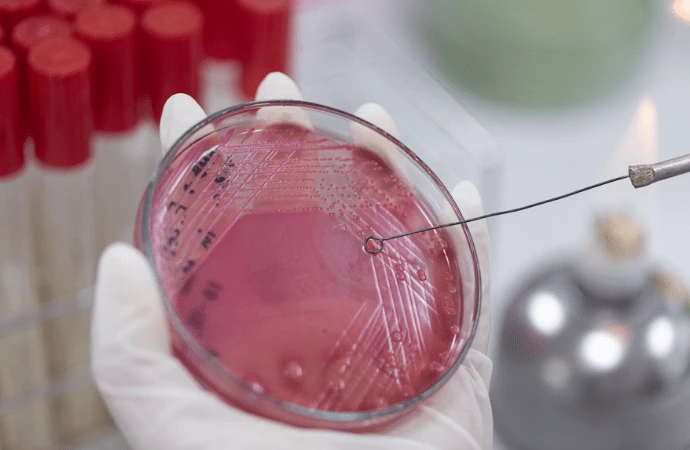In 2016, antimicrobial resistance (AMR) gained unprecedented political attention at a UN high-level meeting. This gathering marked only the fourth occasion the UN convened to address a health issue, underscoring the severity of the AMR crisis. UN member states pledged to tackle AMR through a coordinated approach spanning human health, animal health, agriculture, and environmental health. Despite these commitments, progress over the ensuing eight years has been inconsistent. Although 178 countries have developed national action plans, fewer than a fifth of these plans are adequately funded or implemented. In September 2024, the UN will host a second high-level meeting to catalyze global, regional, and national actions against AMR. The meeting aims to make substantial progress on one of the most pressing health threats of the 21st century.
A Roadmap for Equitable Global Health Solutions
A new Lancet Series on AMRoffers crucial evidence and insights into interventions and investments necessary for achieving sustainable access to effective antibiotics and accelerating progress in combating AMR. The Series sets forth global targets for human and animal health by 2030, emphasizing that the high burden of bacterial infections is a core issue, with AMR representing a symptom of global health inequities. These inequities are not adequately addressed by agendas focused predominantly on high-income countries.
The Staggering Human Costs of AMR
The human costs of AMR are staggering. Far from being a future threat, AMR already has a significant impact on health worldwide. A 2022 study estimated nearly 5 million deaths annually are associated with drug-resistant bacteria, with the heaviest burden in low- and middle-income countries (LMICs). The Series highlights the life-course effects of bacterial AMR, particularly affecting newborns, older people, and those with chronic illnesses, thus impeding the achievement of Sustainable Development Goals related to health, poverty alleviation, and economic growth. Treating resistant bacterial infections is estimated to cost $412 billion annually, with productivity losses due to AMR potentially reaching $443 billion per year.
Prioritizing Infection Prevention: A Key Strategy to Combat AMR and Save Lives
Strengthening infection prevention is pivotal in reducing antibiotic use and curbing resistance, yet it remains insufficiently prioritized. Bacterial infections are the second leading cause of death worldwide, and insufficient access to antibiotics kills more people than AMR itself. High rates of infection drive antibiotic use, while inadequate access to high-quality antibiotics and poor regulation in LMICs foster misuse. The Lancet Series underscores the importance of expanding infection prevention methods, such as safe drinking water, effective sanitation, vaccination, and infection control in healthcare facilities. These measures could prevent over 750,000 deaths associated with bacterial AMR annually in LMICs, yielding additional health and societal benefits.
Ensuring Affordable Access: The Critical Role of Innovation in Combating AMR
Innovation in research and development must prioritize access. While developing new antibiotics is crucial, they must be affordable where they are most needed. Global funding for antibiotics research and development has increased by 25% since 2017 to $1.68 billion annually. However, many new antibiotics remain unaffordable or unavailable in LMICs. A report from the Access to Medicine Foundation indicates that five late-stage clinical projects targeting drug-resistant pathogens in LMICs could save at least 160,000 lives annually, yet concrete commitments for registration exist in only five of 113 LMICs. Recently, the UK announced up to £50 million to support African countries in accessing essential antimicrobial drugs. Funding for diagnostic tests and vaccines targeting antibiotic-resistant bacteria has been even more scarce.
Implementing Actionable Solutions: Addressing the Multisectoral Challenges of AMR
AMR is a complex, multifaceted issue intersecting human, animal, and environmental health, thriving in poverty. The forthcoming political declaration from the second high-level meeting on AMR will be evaluated based on its implementation, not its rhetoric. The Lancet Series provides clear, evidence-based guidance for achieving life-saving targets, mitigating AMR, and enhancing food security, emphasizing the need to address the differing priorities of high-, middle-, and low-income countries.
The stories and experiences of AMR survivors underscore the urgent need for robust action. The UN General Assembly in September 2024 and the 4th High-Level Ministerial Conference on AMR in Riyadh present pivotal opportunities for change. By incorporating patient voices and prioritizing a people-centered approach, these platforms can inspire decisive actions to strengthen the global response to AMR and alleviate the suffering of millions.
Source Credit: The Lancet
Image Credit: iStock






